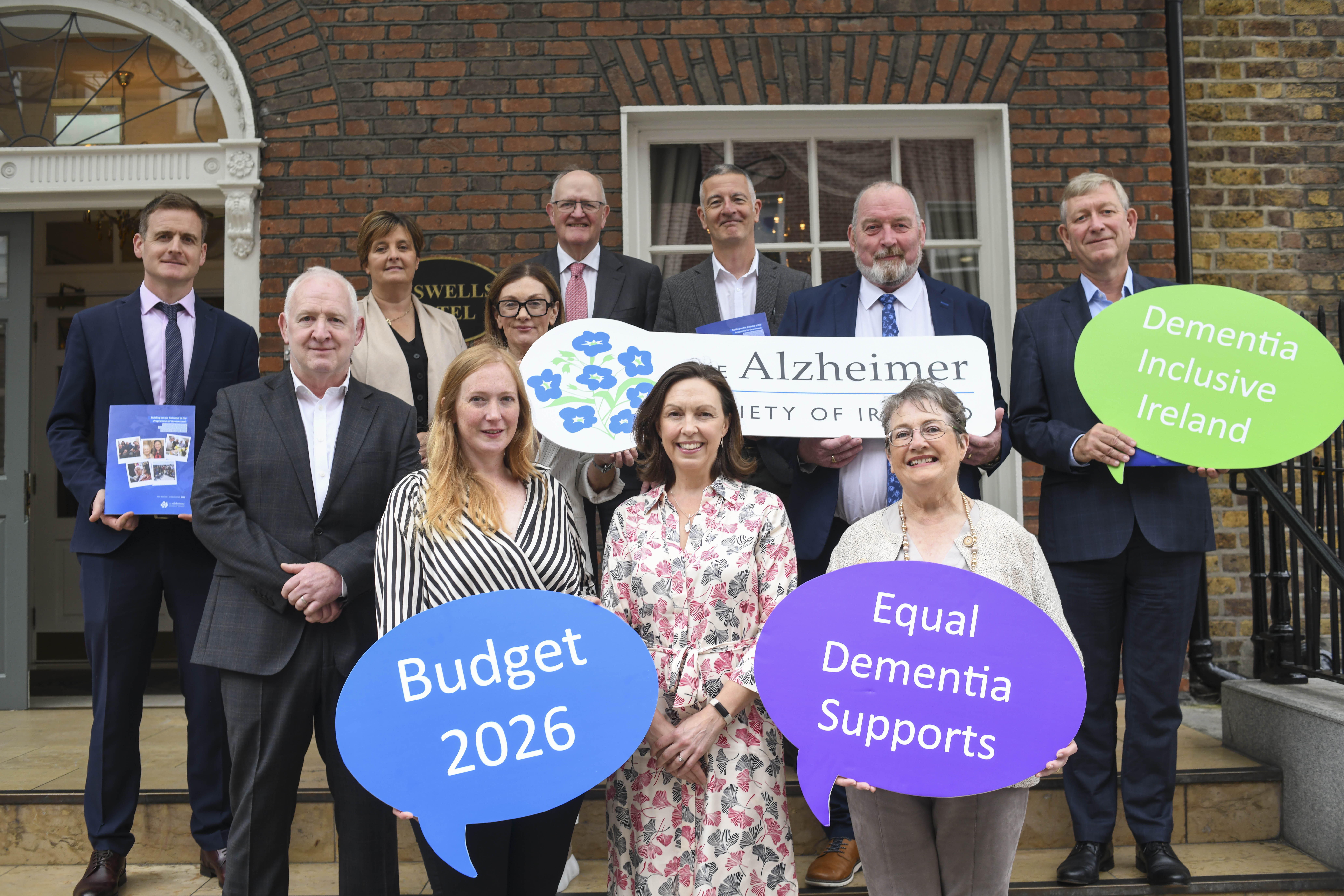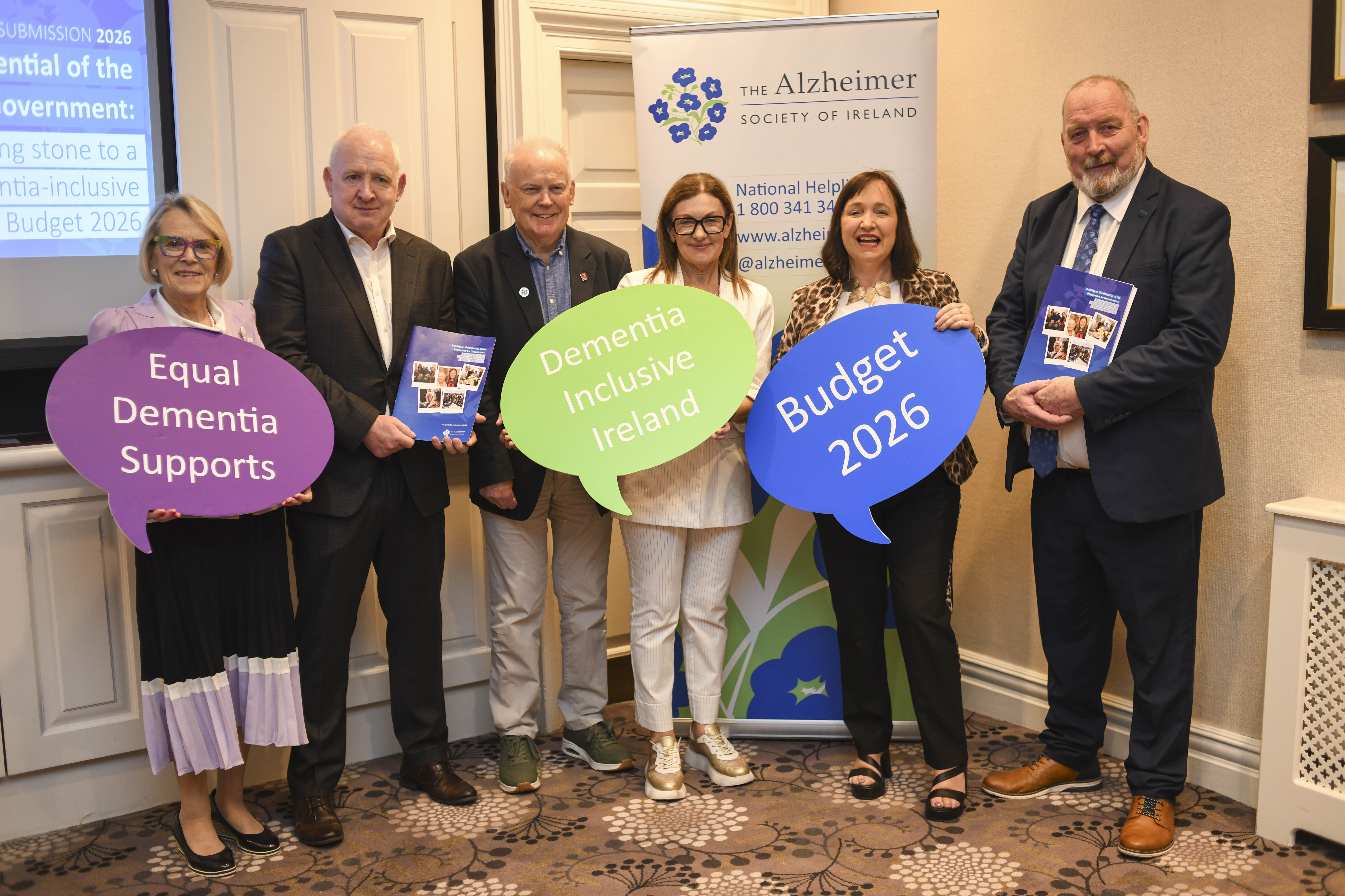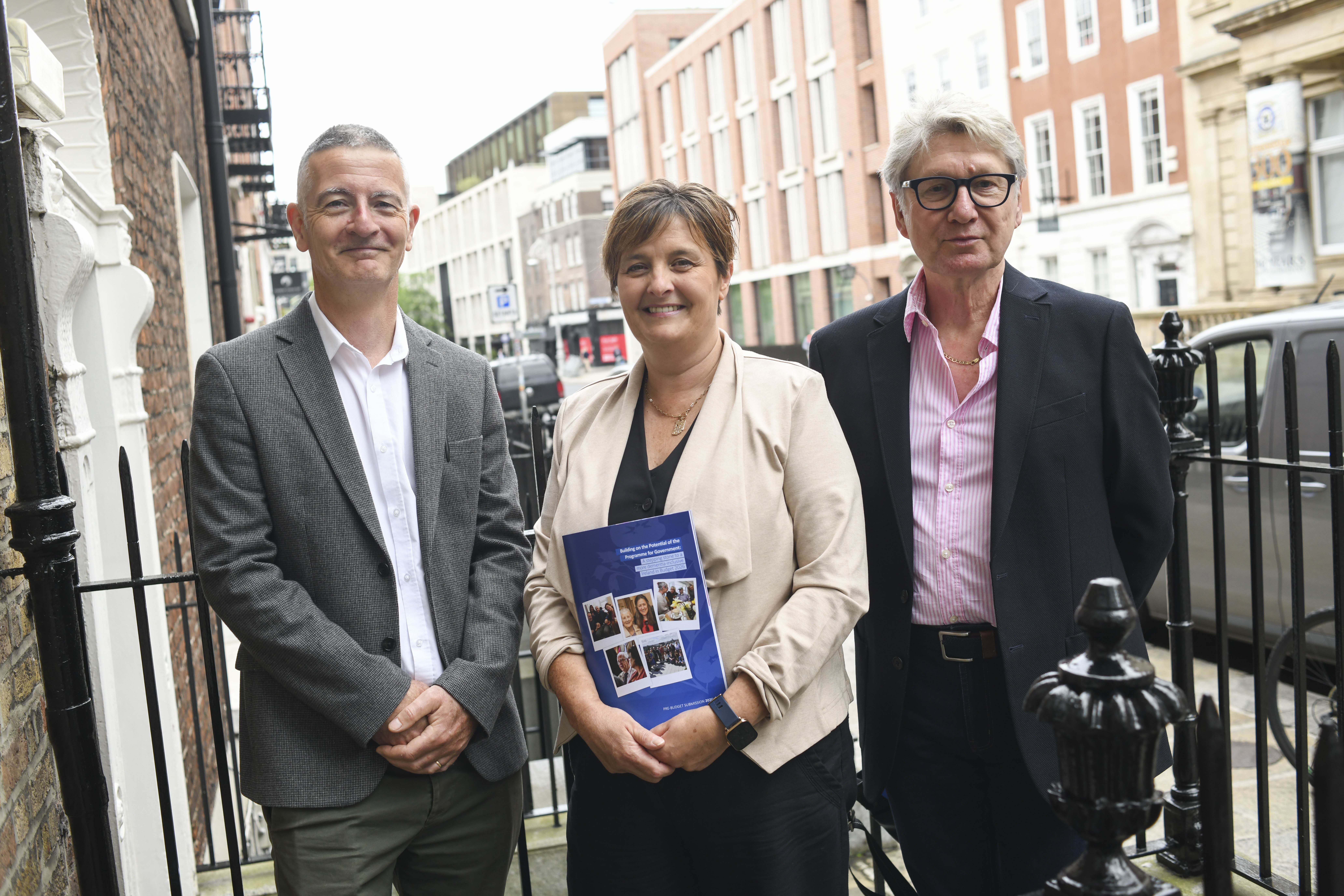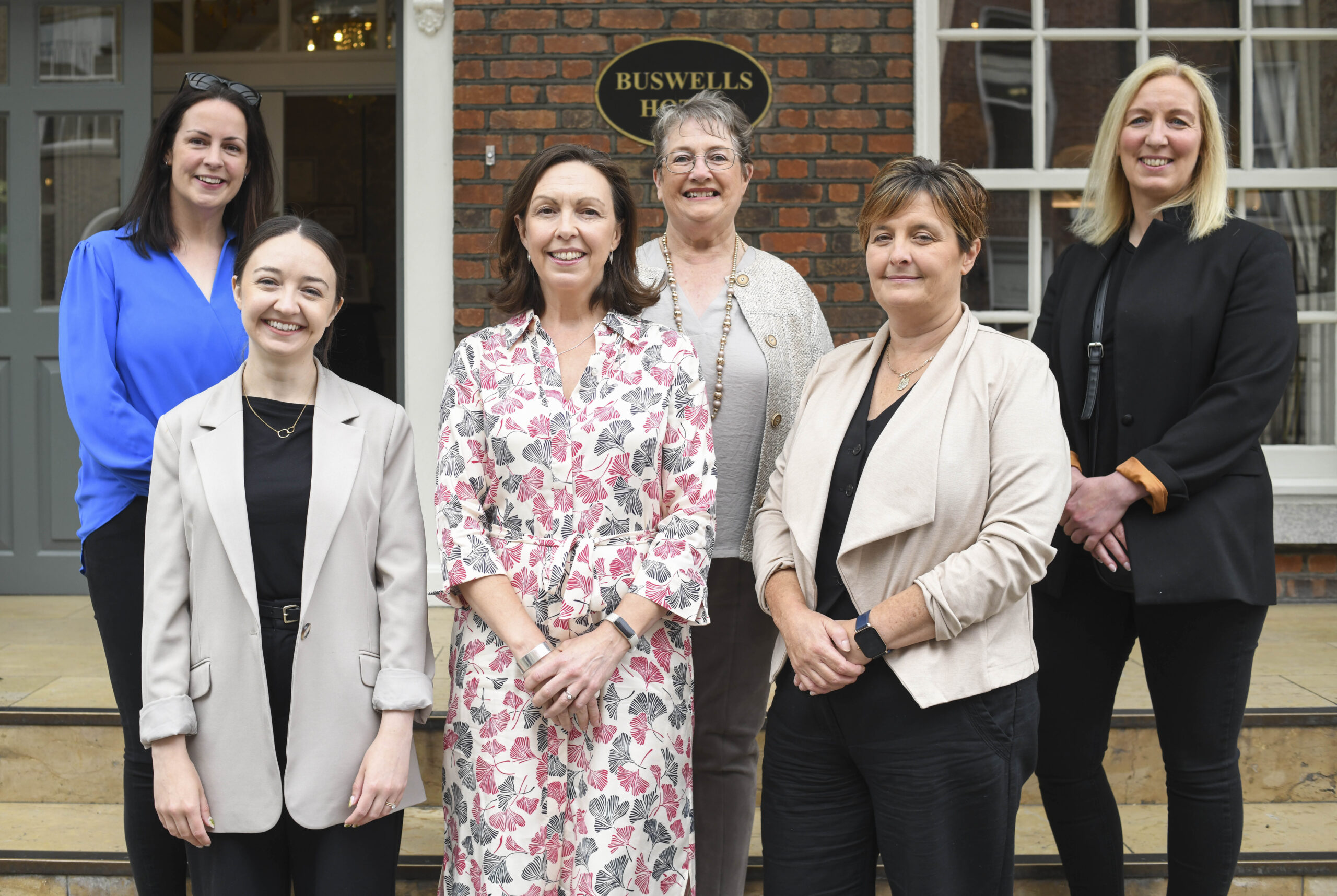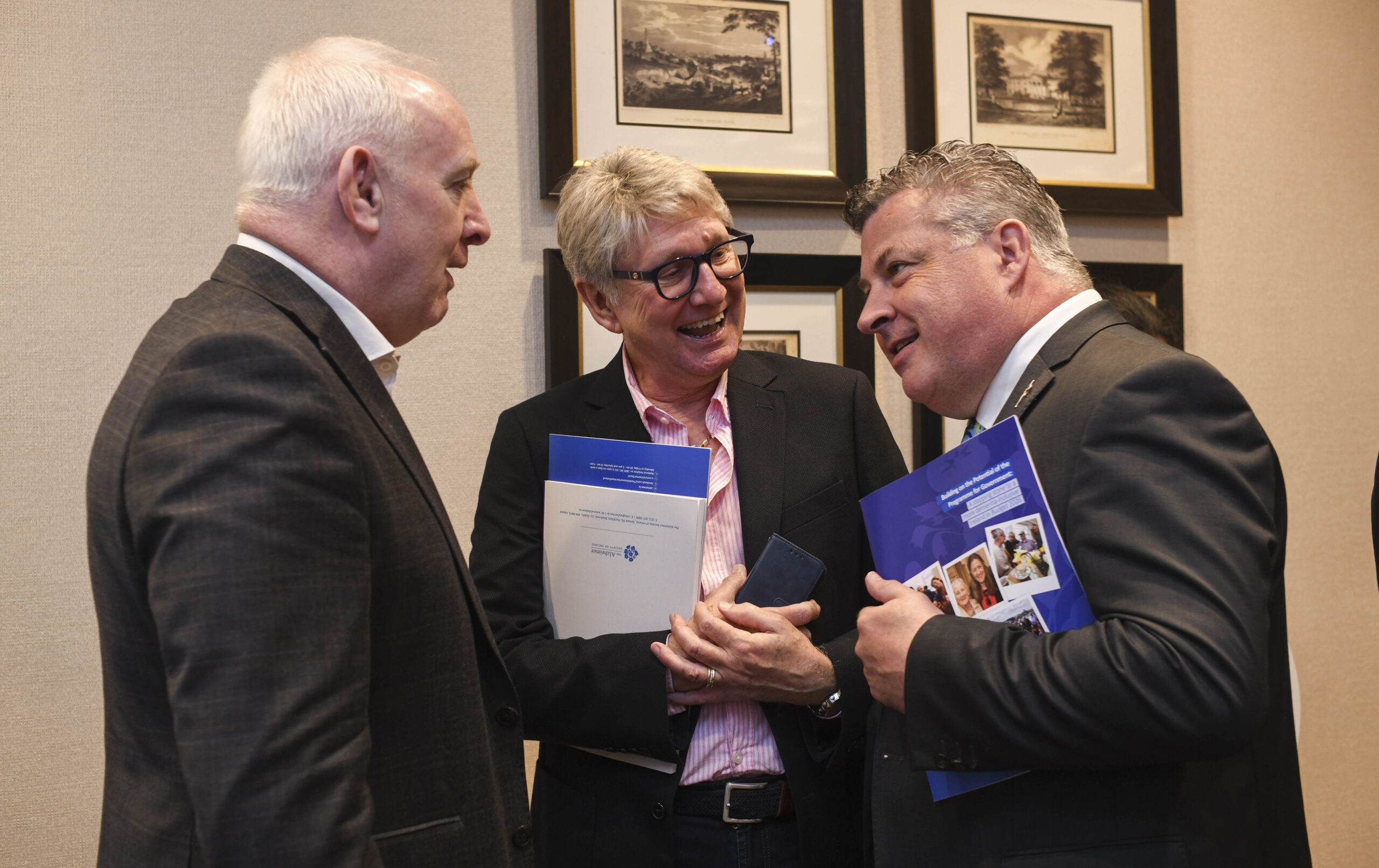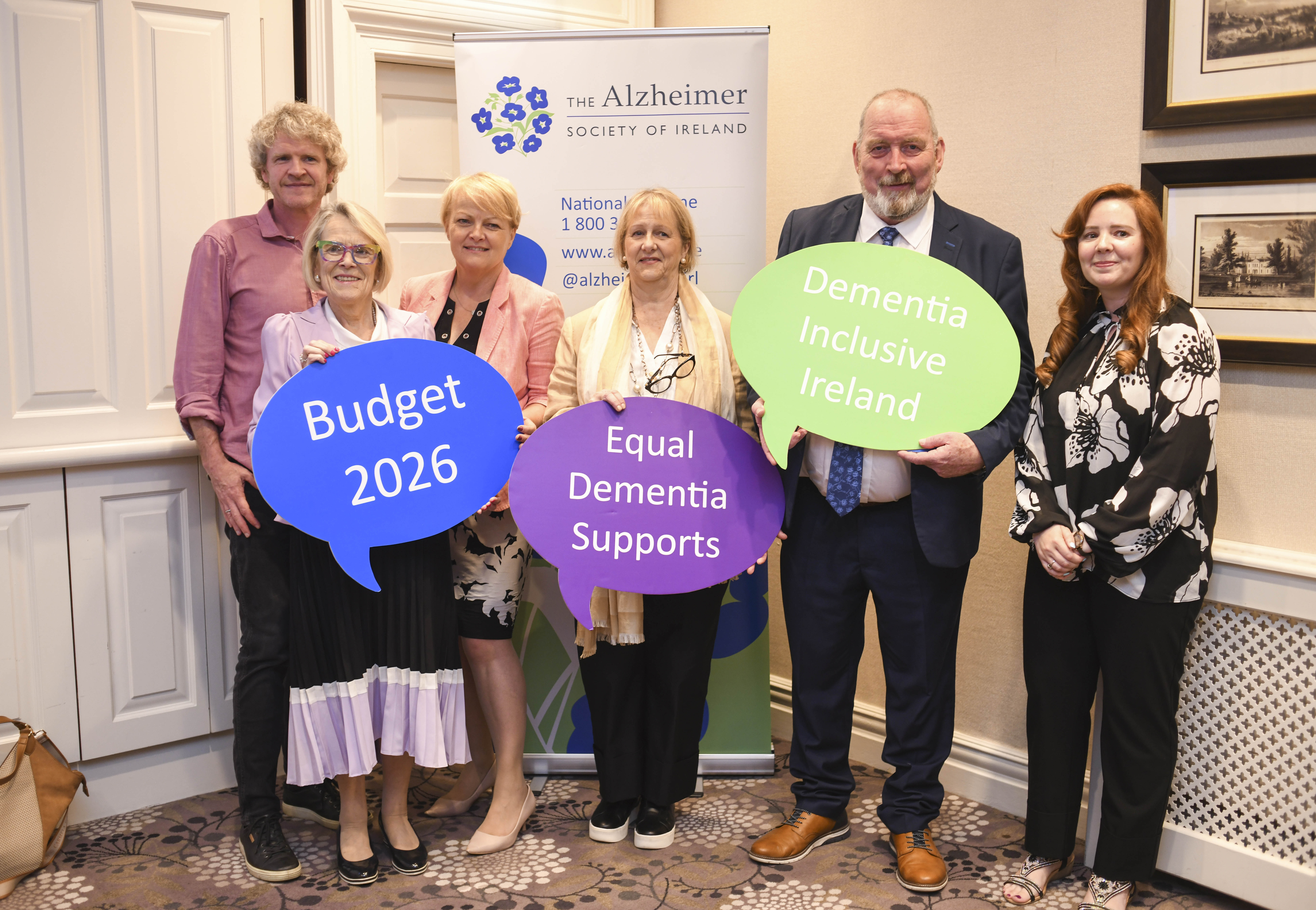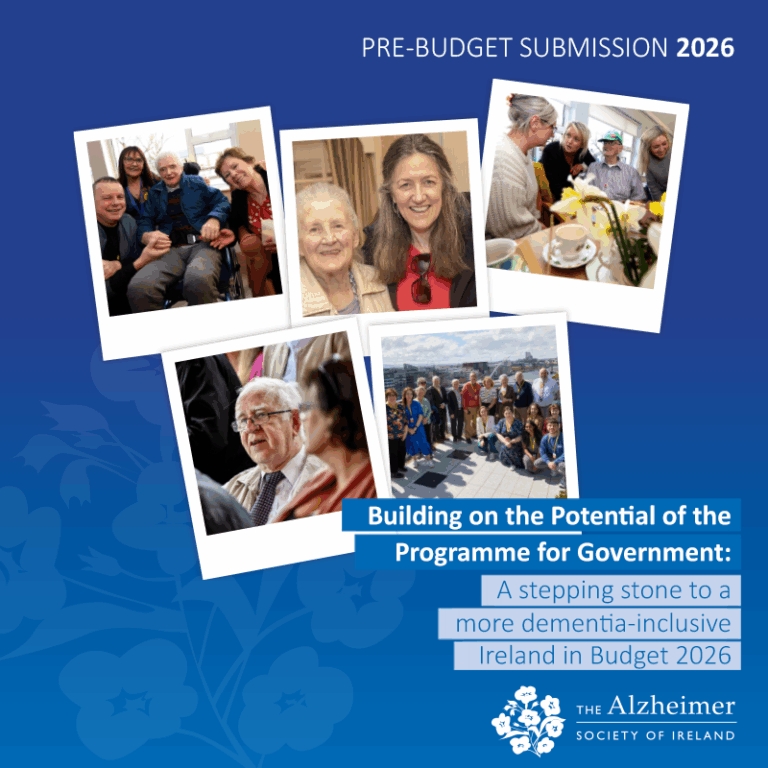A Stepping Stone to a More Dementia-Inclusive Ireland in Budget 2026
Our Reaction
October 9th 2025
The Alzheimer Society of Ireland Welcomes Budget 2026
Overall, the Government has allocated an additional €2.3 million in funding towards improved access to diagnostics and supports for people with dementia in Budget 2026. This includes more funding for day care centres, day care at home and additional dementia advisers. It has also been confirmed that a minimum of 22% of all new home support hours will be ringfenced for people with dementia.
Dementia-specific areas
- Five new dementia-specific Day Care Centres to be developed across the country
- Expansion of the Day Care at Home service
- Minimum of 22% of all new home support hours ringfenced for people living with dementia (In total €82m in additional funding for home support, which will provide for an increase of 1.7 million hours)
- Increase total of number of Dementia Advisers nationwide by two up to 36.
- Roll out of the National Dementia Registry and investment in Memory Assessment and Support Services (MASS) which shows real progress and momentum behind this.
The ASI is very grateful to Minister Kieran O’Donnell, Minister of State for Older People and Housing, for securing this funding for dementia-specific support in Budget 2026.
This funding will make an impact on the lives of people with dementia and family carers across Ireland, and we really appreciate the Minister’s ongoing support and understanding.
To read the Department of Health press release with the details, please click here
Other highlights from Budget 2026 which will impact on people affected by dementia are
- €92m additional funding allocated to the Fair Deal Scheme to support the nursing home sector to expand services. It includes providing 500 more people with financial support to access long-term residential care.
- Additional €2m funding for Meals on Wheels (increase of 30% from 2025)
Social Protection
- From January 2026, €10 increase in weekly social welfare payments, including weekly carer’s allowance and carer’s benefit.
- From July 2026, an increase in limits for means test for carer’s allowance. Income disregards increase to €1,000 per week for a single person, and €2,000 per week for a jointly assessed couple.
- From July 2026, the income limit for Carer’s Benefit will increase by €375 to €1,000 per week.
The ASI is committed to working with Minister O’Donnell, the Government, the HSE, National Dementia Services, the All-Party Oireachtas Group on Dementia, which is chaired by Senator Fiona O’Loughlin and Deputy George Lawlor, and people affected by dementia to meet the challenges that dementia presents in Irish society and Budget 2026 marks another step in this journey.
I want to thank everyone who supported our Pre-Budget 2026 campaign ‘A Stepping Stone to a More Dementia-Inclusive Ireland’ including staff, supporters and advocates.
Thanks to all our advocates and members of the Irish Dementia Working Group, Dementia Carers Campaign Network and Dementia Research Advisory Team who contributed as well.
Given the rising need for dementia supports and services, this extra funding in Budget 2026 will build on the investment in recent years and will help address the challenges faced by people impacted by dementia across the country.
Regards,
Andy Heffernan | CEO
Budget 2026: Our Key Asks
Dementia-Specific Day Services
Day care centres are essential in supporting people with dementia and their families. These centres provide structured activities, social engagement, and a safe, welcoming environment that helps people thrive outside of their homes. They also offer vital respite for family carers.
The ASI currently operates 59 dementia-specific day centres nationwide. In 2024 alone, there were over 78,000 attendances, supporting more than 2,100 people living with dementia. However, demand continues to outpace capacity, with many centres facing long waiting lists and some people travelling far to reach our centres.
To address this, The ASI is seeking €320,000 to develop four new one-day dementia-specific day services and €160,000 to expand capacity in four existing services.
In addition, The ASI is seeking an investment of €500,000 to provide more Day Care at Home to provide a further 16,666 hours (330 hours per week), supporting 115 families.
This investment will allow more individuals to access care closer to home and relieve pressure on overburdened families.
Information and Emotional Support Services
People affected by dementia need consistent access to personalised information and emotional support throughout their journey. Dementia Advisers offer local, tailored support – including guidance, signposting, and emotional care. The ASI is calling for funding for eight additional posts to expand this service.
In addition, there is growing demand for counselling services, with 84% of people living with dementia and 71% of carers saying they would avail of counselling if it were available. The ASI is seeking €62,000 to fund a project that will develop a framework for dementia-specific counselling services.
Dementia-Specific Home Support
Access to home support is a lifeline for many families – but current services often lack the training, consistency, or staffing levels required for dementia-specific care.
The ASI is calling for €7.3 million in 22% ringfenced dementia-specific home support hours (on the basis of allocation of 1 million home support hours), with a focus on rural access and addressing critical staffing shortages (currently affecting 63% of families).
Dementia-specific care must be person-centred and delivered by trained professionals. Unfortunately, these roles are often undervalued and underpaid, contributing to staff retention issues. While a Statutory Home Care Scheme is in development, families cannot afford to wait. Many carers are providing over 134 hours of care per week, often at great personal cost.
Invest in Dementia Research
Ireland currently lacks a dedicated, long-term funding mechanism for dementia research. The ASI is seeking €50,000 to conduct a scoping exercise for Ireland’s first multiannual dementia research fund.
This initial investment would assess the current research landscape, identify gaps and priorities, and outline governance and funding structures for a full research programme. With dementia cases expected to rise dramatically, strategic research is urgently needed to improve care, innovate services, and reduce long-term costs.
Ireland has the opportunity to align with global momentum on dementia research and establish itself as a leader in addressing one of the most pressing health challenges of our time.
The ASI is calling on the Government to support people living with dementia and family carers to access opportunities to participate in dementia research through its national research participation service, TeamUp for Dementia Research (TUDR).
Looking at supporting carers directly
Budget 2026 must deliver financial support for carers, including the introduction of a universal carer’s payment and the replacement of the current means-tested Carer’s Allowance with a universal payment to ensure equitable financial support for all family carers. Family carers of people living with dementia deliver intensive, round-the-clock care, often at great financial cost and with little formal recognition.


Home care is a vital support for carers and families too, providing respite and social interaction that can make a hugely positive difference to people’s lives.
Muriel Moore, member of the Dementia Carers Campaign Network
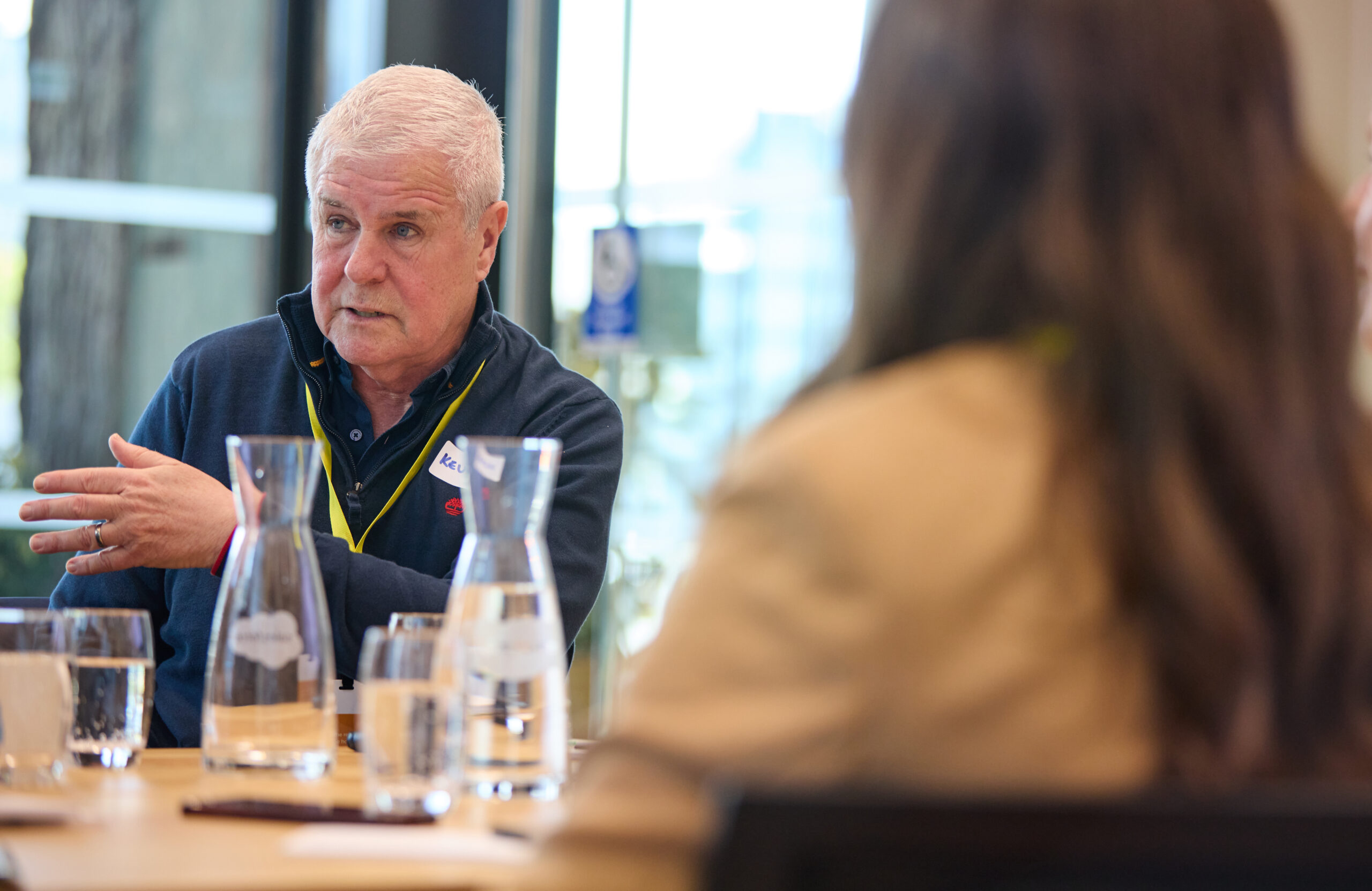
It is essential that we invest in research into more effective care and treatments, reduce health and social care costs in the future and most importantly, improve the quality of life for people with dementia, their care givers, and families.
Kevin Cullen, member of the Dementia Research Advisory Team
Our Key Asks in Detail
On 25th June, The ASI launched its Pre-Budget Submission 2026 calling for over €9 million in investment to address the growing needs of people living with dementia and their family carers.
Staff, Advocates and Board Members attended the event at Buswells Hotel, Dublin. The ASI appreciates the engagement of Ministers, TDs, Senators, and political staff who participated in discussions about the urgent need for investment to improve access to services, reduce reliance on residential care, and enhance the quality of life for those living with dementia and their families.
Launch
On 25th June, The ASI launched its Pre-Budget Submission 2026 calling for over €9 million in investment to address the growing needs of people living with dementia and their family carers.
Staff, Advocates and Board Members attended the event at Buswells Hotel, Dublin. The ASI appreciates the engagement of Ministers, TDs, Senators, and political staff who participated in discussions about the urgent need for investment to improve access to services, reduce reliance on residential care, and enhance the quality of life for those living with dementia and their families.
Take Action Now: Write to Your Local TD
Please write to your local TD from this webpage and ask them to ensure that the needs of Ireland’s dementia community are addressed.
Please select your local constituency to send them a message before Budget Day 2026 on 7th October 2025.
You can find your local TD by following this link.
Asks From Advocacy and our Patient and Public Involvement Groups
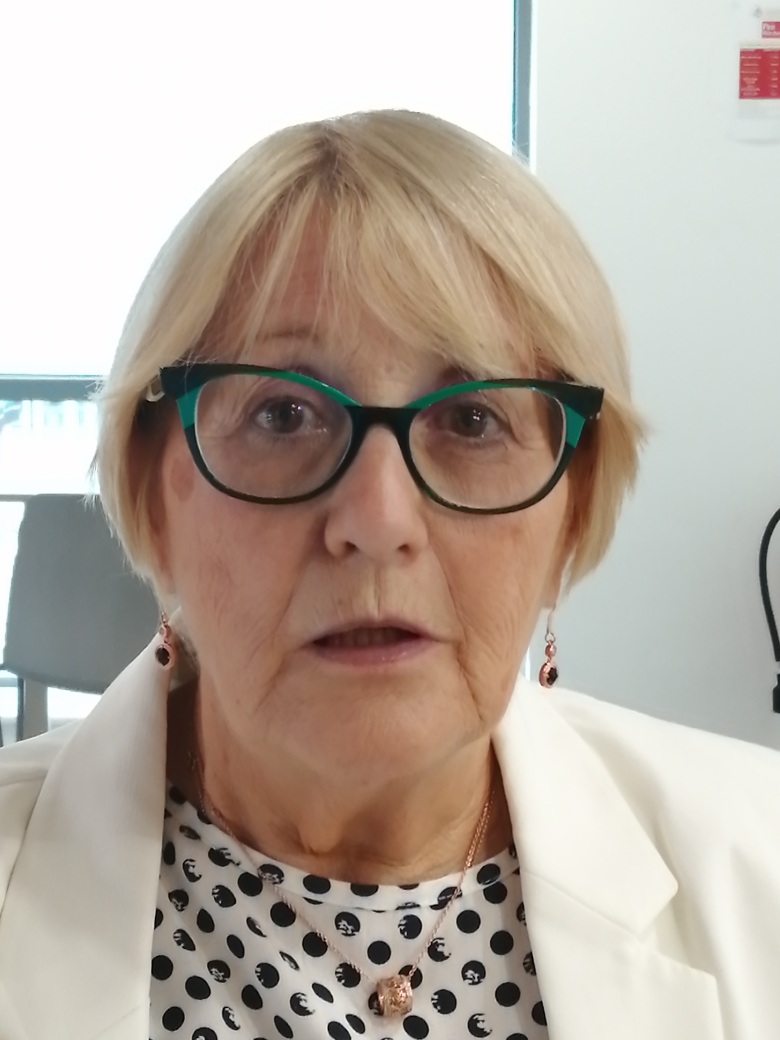
From the moment we receive our diagnosis, we are on an extremely challenging journey. Navigating services and supports is exhausting and confusing. We need more support to help us get the right information, find the right supports, and access the right services. Nothing seems straightforward: applying for disability benefits, applying for the parking permit, accessing appropriate home care services, let alone planning for our future. We require additional information and emotional support as soon as possible. If our journey is made easier, we will stay well for longer.
Kathleen Farrell, Vice-Chair of the Irish Dementia Working Group (IDWG)

We need a comprehensive state-funded information service providing families affected by dementia with timely, accurate and essential information. This should be based on listening and understanding what people need first and then offering information and referrals based on a person’s needs rather than just signposting what is available.
Susan Crampton, Vice-Chair of the Dementia Carers Campaign Network (DCCN)
Read our Press Release
Click on the link here

